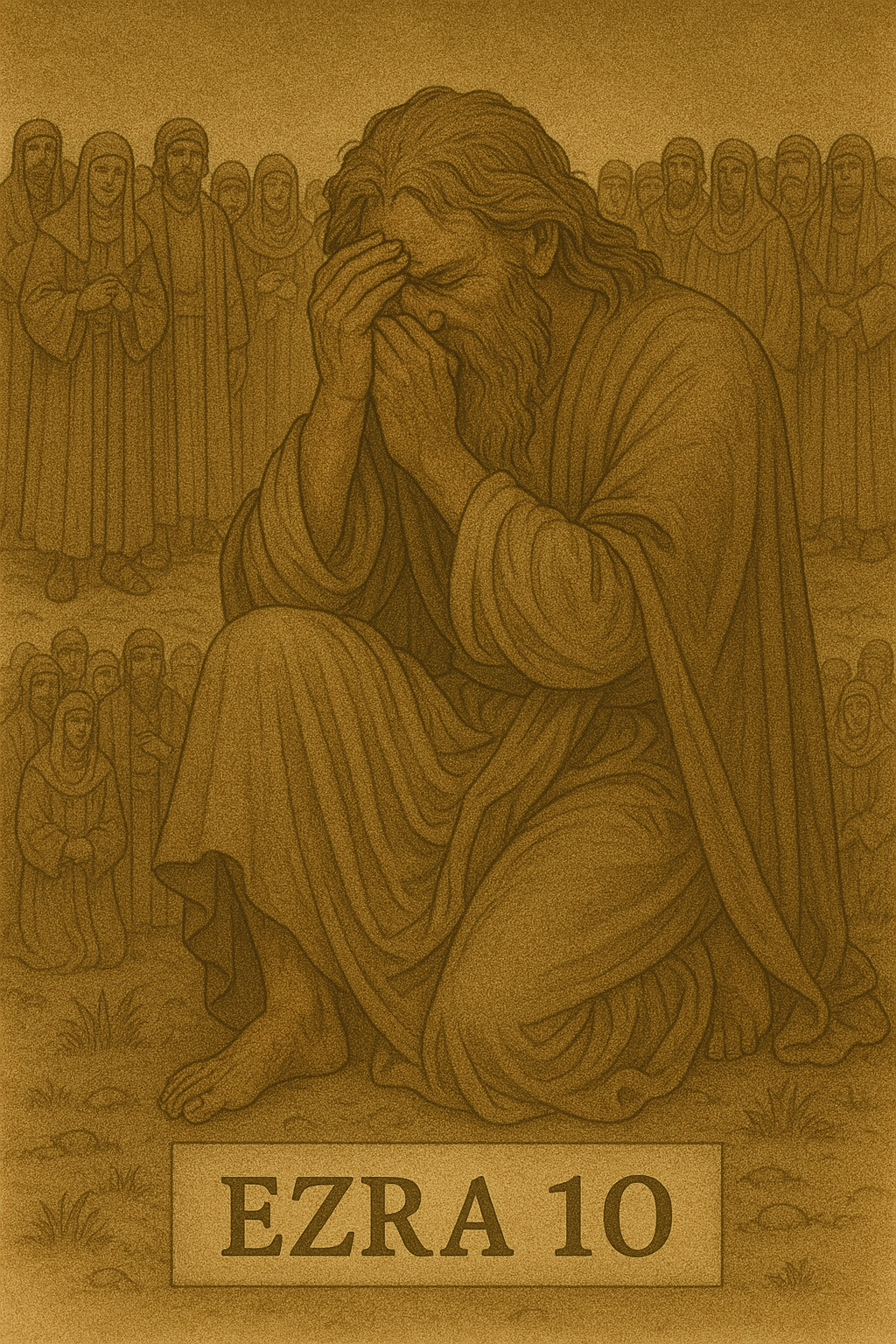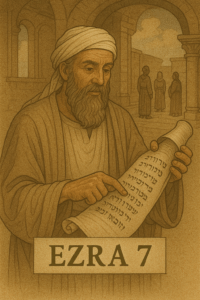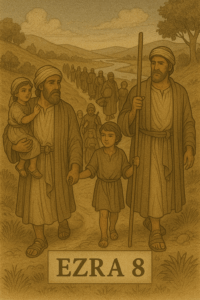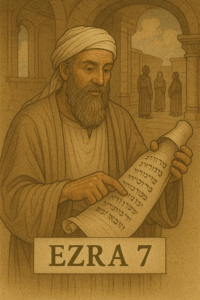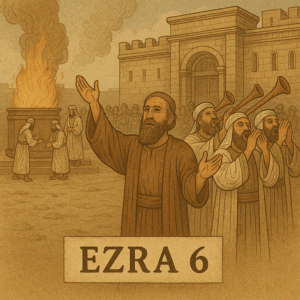When Radical Repentance Restores a People to God
Introduction to Ezra Chapter 10
Ezra Chapter 10 presents one of the most challenging yet transformative moments in Israel’s history. After discovering widespread intermarriage with pagan nations (Ezra 9), Ezra leads the people in radical repentance—a process that reveals both the cost of disobedience and the power of returning to God.
Key Events in Ezra Chapter 10
1. The People’s Conviction (Ezra 10:1-6)
-
Ezra’s Prayer Sparks Repentance: His brokenness over sin (Ezra 9) moves the people to weep and confess.
-
A Public Decision: The leaders propose sending away foreign wives and children to uphold covenant purity (10:2-4).
2. National Assembly and Confession (Ezra 10:7-17)
-
Urgent Gathering: All exiles must attend or lose property (10:8).
-
Rain-Soaked Repentance: They meet in heavy rain—a symbol of both judgment and cleansing (10:9,13).
-
Three-Month Process: A committee investigates each case to ensure justice (10:16-17).
3. The List of Those Who Married Foreigners (Ezra 10:18-44)
-
Priests First: Leaders set the example by confessing first (10:18-22).
-
Full Accountability: Over 100 names are recorded—showing transparency in repentance.
4 Spiritual Lessons from Ezra Chapter 10
1. Sin Requires Radical Action
-
The people didn’t justify compromise but took painful steps to obey God (Matthew 5:29-30).
2. Repentance Starts with Leaders
-
Ezra and the priests led the way—spiritual renewal begins at the top.
3. God Honors Brokenness
-
Their tears (10:1) moved God’s heart, just as He responds to contrite spirits today (Psalm 51:17).
4. Covenant > Comfort
-
Sending away families was agonizing, but loyalty to God came first (Luke 14:26).
Application for Today
-
Name and Renounce Compromise: Are there areas where we’ve blended with ungodly values?
-
Lead in Repentance: Like Ezra, pastors/parents must model conviction.
-
Trust God with the Aftermath: The Bible doesn’t record the fallout, but obedience brings blessing.
Controversy & Clarity
Some struggle with this chapter’s severity, but key context:
-
This was covenant treason, not racial exclusion (Deuteronomy 7:3-4).
-
The action prevented Israel’s spiritual extinction (as in Solomon’s downfall, 1 Kings 11:1-2).
Conclusion
Ezra 10 isn’t about harshness but holiness. It shows that revival often demands uncomfortable obedience—but the reward is restored fellowship with God.
